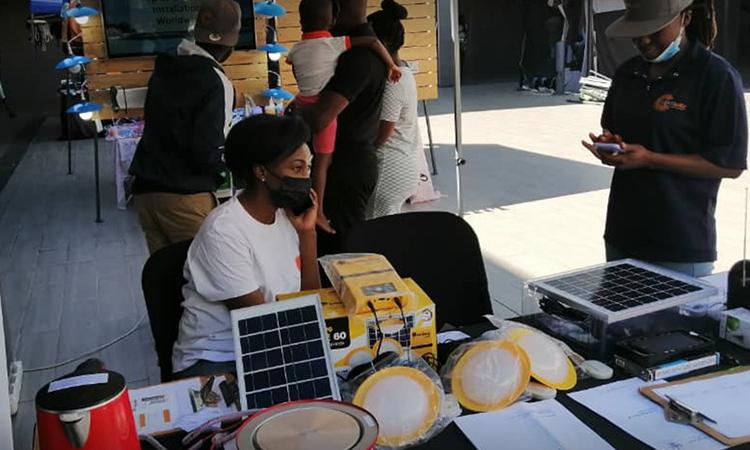Africa-Press – Namibia. A COMPANY involved in the importation and sale of solar freezers has complained that the classification of the appliances as “luxury goods” is making them expensive for the intended beneficiaries.
Moira Alberts, the managing director of Taatisolar Namibia, says classifying solar fridges as luxury items attracts an additional 25% tax, which is passed on to the customer, making the appliance more expensive than it should be.
She says this is a contradiction, considering the government’s drive to promote the use of renewable energy, especially for people living in off-grid rural areas and in informal settlements where there is no electricity.
“Solar refrigeration is not a luxury, as there are those who have been deprived of access to electricity for their entire lives,” she says,adding: “These are mainly Namibians, less privileged rural people, who now have to pay the duty we add to our price.”
She says her company has been selling solar fridges for about five years, but affordability is starting to affect the family business.
“You cannot be on a drive for renewable energy and expect people to buy expensive gadgets. The government should rather subsidise these by scrapping the luxury import duty.
“When we bring the container of solar freezers to Walvis Bay, the customs department charges 16,5% import VAT before adding 25% for luxury imports,” she says, adding that they sell between 250 and 300 units a year.
“The demand shows that this is no longer a luxury, but a basic need,” she said.
Jahan van Straaten, the general manager of Furntec – a Windhoek company also involved in the importation and installation of renewable energy systems, agrees that classifying solar freezers as luxury goods was making them expensive because of the imposed duties.
“This is a legislative matter which should be changed as society is dynamic. However, legislation takes long to change.”
He says some companies had taken advantage of the Southern African Customs Union rules to set up manufacturing plants in South Africa instead of importing from overseas to avoid paying import duty for luxury goods.
“These solar freezers are a necessity for people living in rural areas to enable them to have fresh food like fish and meat,” he says, adding that his company had helped install renewable energy systems in informal sectors, thereby empowering the people through the provision of energy.
“Some people in the informal sector have started small businesses like selling meat, chicken and fish to generate an income for themselves,” he said.
Email: [email protected]
Moira Alberts, the managing director of Taatisolar Namibia, says classifying solar fridges as luxury items attracts an additional 25% tax, which is passed on to the customer, making the appliance more expensive than it should be.
She says this is a contradiction, considering the government’s drive to promote the use of renewable energy, especially for people living in off-grid rural areas and in informal settlements where there is no electricity.
“Solar refrigeration is not a luxury, as there are those who have been deprived of access to electricity for their entire lives,” she says,adding: “These are mainly Namibians, less privileged rural people, who now have to pay the duty we add to our price.”
She says her company has been selling solar fridges for about five years, but affordability is starting to affect the family business.
“You cannot be on a drive for renewable energy and expect people to buy expensive gadgets. The government should rather subsidise these by scrapping the luxury import duty.
“When we bring the container of solar freezers to Walvis Bay, the customs department charges 16,5% import VAT before adding 25% for luxury imports,” she says, adding that they sell between 250 and 300 units a year.
“The demand shows that this is no longer a luxury, but a basic need,” she said.
Jahan van Straaten, the general manager of Furntec – a Windhoek company also involved in the importation and installation of renewable energy systems, agrees that classifying solar freezers as luxury goods was making them expensive because of the imposed duties.
“This is a legislative matter which should be changed as society is dynamic. However, legislation takes long to change.”
He says some companies had taken advantage of the Southern African Customs Union rules to set up manufacturing plants in South Africa instead of importing from overseas to avoid paying import duty for luxury goods.
“These solar freezers are a necessity for people living in rural areas to enable them to have fresh food like fish and meat,” he says, adding that his company had helped install renewable energy systems in informal sectors, thereby empowering the people through the provision of energy.
“Some people in the informal sector have started small businesses like selling meat, chicken and fish to generate an income for themselves,” he said.
For More News And Analysis About Namibia Follow Africa-Press






